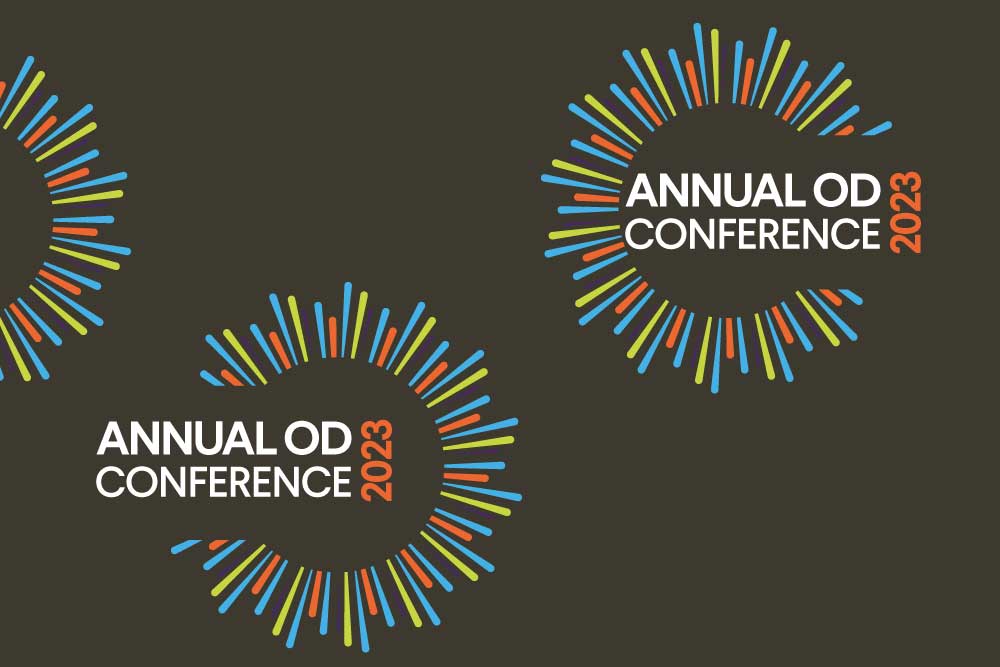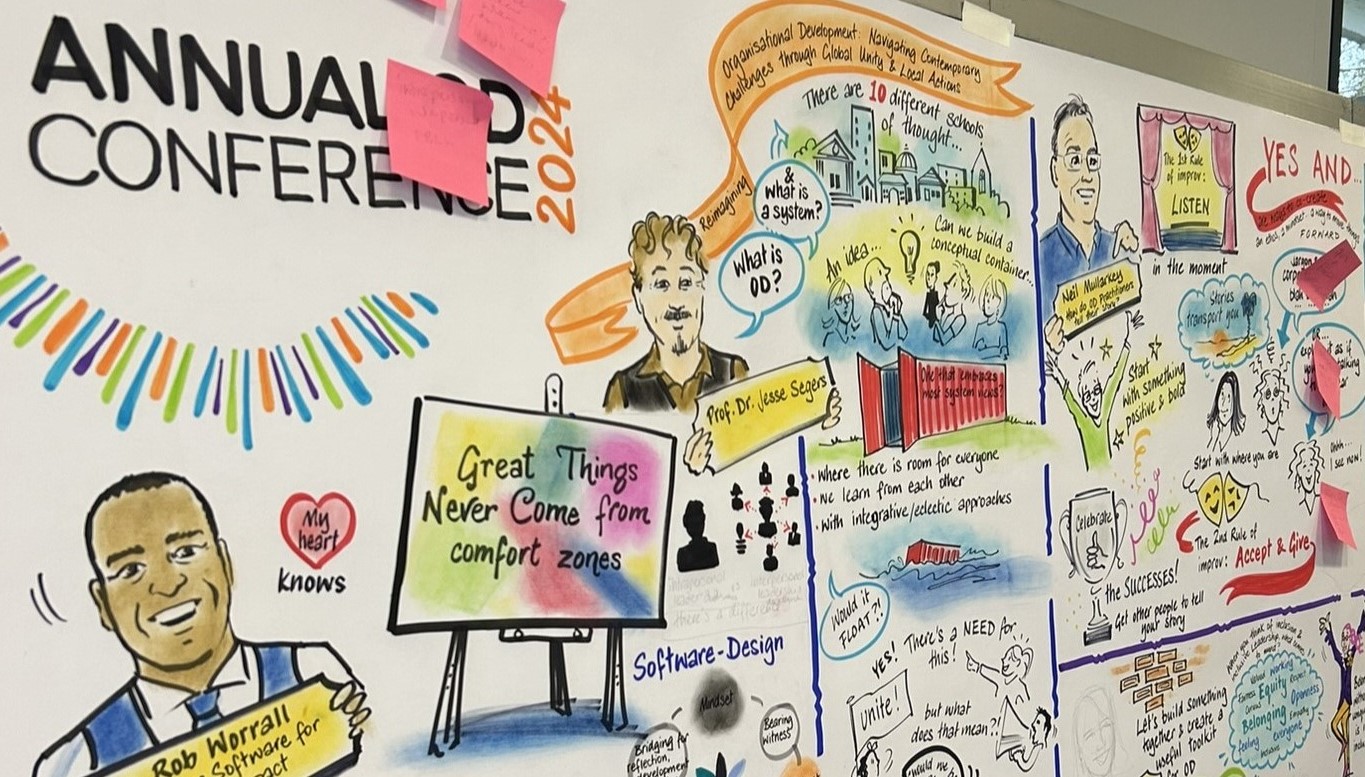During the 26th-27th of October, Dr Graham Curtis will be one of the keynote speakers at Roffey Park Institute’s OD Conference. Graham will draw upon his doctoral research to encourage us to explore how we think about our practice which puts curiosity and doubt at the heart of how we work. Graham is passionate for everyone to think about what organisational development means for them individually.
In line with the OD conference’s overarching theme of sustainability, Graham explained to Roffey Park Institute that OD is about developing the flexibility to cope with environmental change. He told us that “there is always a need for OD because the environment is always changing, and we need to change with it. OD is about having the right level of stability to be able to manage that change.”
Graham’s journey
Unconventionally, Graham did not enter the world of OD with a first degree. In fact, Graham grew up in an environment which didn’t place an emphasis on people going on to higher education and so he only started to study in that way in his late thirties.
Graham became an Immigration Officer at Heathrow Airport at the age of 21, working his way up to become a Senior Manager in the Immigration Department of the Home Office. At the age of 38, his career changed direction after his graduation from the Roffey Park MSc. Graham explained that, as a senior manager, he was looking to discover more about leadership, management and organisational development. After graduating, Graham became the Head of Organisational Development within the UK Border Agency.
At the time that Graham applied to enrol on the Roffey Park Institute MSc, he had no first degree. Despite this, in the spirit of inclusivity, Roffey Park recognised Graham’s deep curiosity in people, change and organisations and duly accepted his application. Graham explained how he believed that it would be a struggle to find a qualification that would accept his enrolment because he came from a working-class background in the Northeast of England with no first degree.
However, the diversity, intersectionality and inclusiveness that the MSc encourages, gave Graham a different level of confidence in himself and his practice. “It changed my life,” he said.
Between then and now, Graham has held numerous positions in the field of organisational development, as well as some time as an independent consultant. It was whilst Graham was studying at Roffey Park Institute that he discovered an interest in complexity theory and what that might mean for how we understand change in organisations. In 2018, Graham graduated from the University of Hertfordshire with a Doctorate of Management. This allowed him to look for opportunities which would enable him to use his understanding of complexity theory to support organisations in change. In 2020, Graham reached out to Roffey Park Institute and became an associate supporting the design and delivery of the MSc programme.
It was not long after that before Graham became the Director of the Roffey Park Academy and then quickly the Director of Operations. He told us, “It is a huge privilege for me to be the Director of Operations at Roffey Park considering the impact that Roffey Park and the MSc had on my own career.”
Graham and OD
For Graham, OD is explicitly underpinned by a set of values that are humanistic, that is about inclusivity, democratisation and helping people have agency. OD is about people participating in the process of organisational change whilst recognising the dignity of the people involved. Graham will also speak about the concept of being confidently doubtful. This is learning to accept that you can be wrong, finding ways to cope with ambiguity, and how to maintain action whilst in these challenging situations. In other words, working reflexively with what excites and what challenges us. Discovering how others shape us, and how we shape others around us.
Despite all we understand about OD and change, Graham will be sparking the debate at the OD conference around what keeps things the same, rather than how we change things. He will draw attention to how our focus on individuals may be hampering our ability to notice how stability and change emerge in how we relate to each other. There is always a temptation to try to predict the future of OD, however, accepting the uncertainty of what we do not know and turning our attention to local work and how it affects global impact may prove more beneficial. Perhaps if we are to save the world, we must start with what is around us that we can have a direct influence on.
Join us at the OD conference in October and continue the ever-growing discussion.





